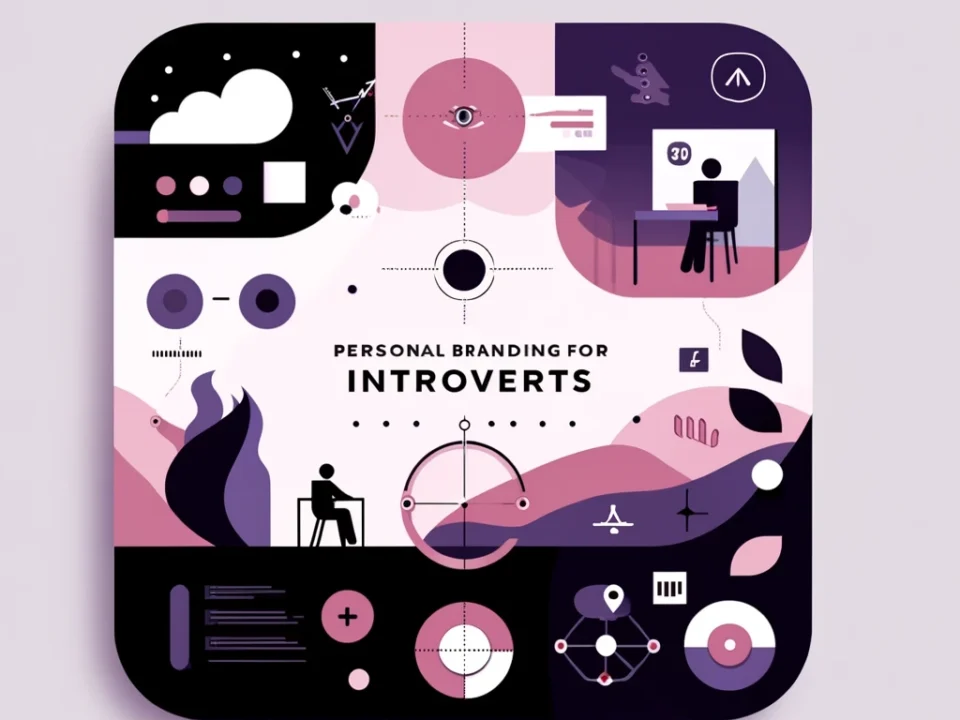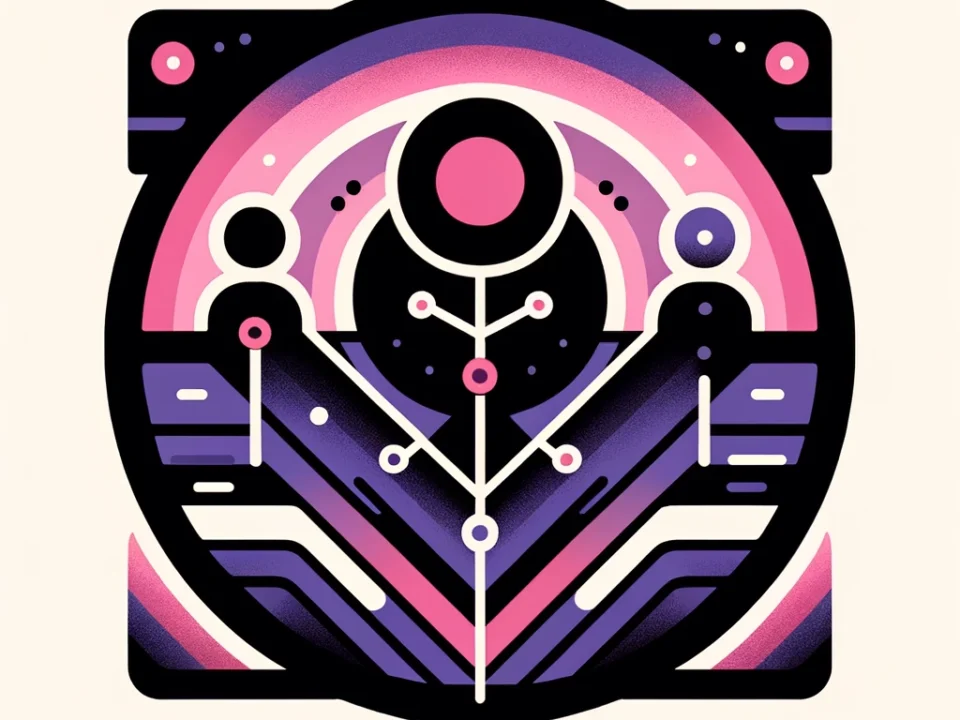Making your own personal brand can seem like an impossible task. Uncertainty is a big reason why people get lost during the process. LeBron James is one of the world’s most successful athletes and basketball players. King James said in a 2010 TV special that he was leaving the Cleveland Cavaliers and “taking his talents to South Beach.” The special got a lot of bad reviews. The fallout from the spectacle and subsequent posturing severely damaged James’s personal and professional reputation because he displayed what many people perceived to be impolite and egotistical behaviour. After five years, however, LeBron’s image has fully recovered, and today he has the distinction of being one of the most popular athletes in the world.
Today’s “observing” culture and the changing job market demand that you stand out if you want to get your desired job or start your own business. Everyone should have a personal brand. So, here are 10 golden rules for making your personal brand interesting, unique, and welcoming.
1. Aim for something that specifies your personal brand
Many people try to be in the good books of everyone, especially when it comes to the press and coverage. If you want to be heard, Cooper Harris, CEO and founder of Klickly, says to find your message and stay true to it. She has skillfully navigated the rapid transformation of her personal brand from that of a working actress to that of a revered tech entrepreneur by maintaining a laser-like focus on a single message at a time. It will be much easier to build content around your personal brand and have other people describe you if you keep your message focused on your target demographic.
Millennial workplace expert and author of The Breakthrough Speaker, Adam Smiley Poswolsky, asks speakers to carve a niche and then carve a niche within that niche. The best personal brands are very specific. Another thing that Juan Felipe Campos, VP of tech and partner at Manos Accelerator, does is focus on the communities that his large clients want to reach. If you want to be remembered in a specific community, make sure your message and content stay on topic. It is easier for people to remember who you are if your brand is clear and focused. This streamlined version of your brand will help people remember it when it is time to hire a speaker or a new employee.
2. Reflect on the authenticity of your Personal Brand.
Being real and genuine is a simple way to make your personal brand stand out. When it comes to personal branding, authenticity is an essential component because it enables you to establish trust on the part of your audience. When people feel that you are being genuine, they are more likely to connect with you and support your brand. On the other hand, people will call out a brand for being a copycat more if it is very clear that it is one.
William Harris, a Facebook ad expert at Elumynt, asks the personal brands out there to be genuine. This will make it much easier to manage your personal brand on a daily basis. Your personal brand should be an easy daily filter through which you create content and reach out to your audience. The content helps amplify who you are. For example- in the initial stage of building your personal brand, you can build up a reputation as an expert in the field while simultaneously amplifying that renown on social media. If you’re deeply skilled in one area, your reputation alone will help you build the brand you want.
3. Tell a story about your personal brand
Half of the people who might be interested in you have already left if your personal brand does not tell a story. Storytelling is the best way to build your personal brand these days; one-dimensional monologues are dull for your brand. No one wants to hear you shout about your brand in the social media void, so create a story around your brand that your audience can engage with.
One of the best ways to tell that story is through written content or video. For example- create your own video channel on LinkedIn and achieve some of the highest levels of engagement across the platform. Nowadays, video content is in demand and the talk of the town. The most personal way to communicate online is with video. Start by using your smartphone to record video messages for your clients, make a personal connection with prospective clients and connect with industry experts and peers. After all, you always have your smartphone on you!
4. Be consistent with your personal brand
People say that being consistent is key, and it really is! Having a narrow focus and being consistent go hand in hand. It is easier to become known for one topic if you consistently create content and brand voice around it. People who work with millennials in a corporate context help them define their more conservative work goals by ensuring that their personal brand promises to stay consistent, both online and offline. Your communication, gravitas, and appearance all need to be consistent. Do not forget that little mistakes can ruin the effectiveness of your personal brand.
Something that makes your brand stand out so people know it is you. Like having a sidekick mascot or a catchphrase that you say at the end of every video—something that people will love. Consistency is very important whether you are making a brand that is crazy, out there, and fun or one that is a bit more conservative and business-like.
5. Be readyto make mistakes while building your personal brand
We all want to avoid failure because it’s difficult; it’s in our nature. But you must experience failure if you want your personal brand to stand out from the crowd. Experiencing a significant setback early in life is beneficial. That teaches you so much. Due to the fact that it somehow awakens you to your potential. Not attempting at all is always more terrifying than what could go wrong.
Before you can get the best branding, you have to fail a few times and get out of your comfort zone. The very best brands always come from repeated trial and error, mistakes and failures, not from instant perfection.
6. Create a positive impact of your personal brand
Once you have built your personal brand over time, you can keep doing so in one of two ways: burn bridges with other people and move on, or slowly build a community around your brand.
When it comes to personal branding, remember that you are your brand. It does not matter what job you have, what project you are working on, or what your current priority is. Always think about how your actions affect other people, and remember that our only asset is our reputation, which is our brand, so be nice to each other!
Keeping a positive attitude and helping others will help you grow your brand in the long run.
7. Follow a successful example
People who want to build their personal brand need to start marketing themselves like the famous and powerful people they look up to every day. Sometimes success comes from studying trends and popular individuals on different social media platforms and then implementing them with a twist. By paying attention on all social media platforms and not just one, you can creatively break down social analytics and find the next big trend.
8. Live with your personal brand
Like we said before, keeping your personal life separate from your brand can make it hard for you to build a personal brand. Even though it is possible, it is easier to start building your personal brand if your lifestyle and brand are the same.
Your personal brand should follow you everywhere you go. It needs to be an authentic manifestation of who you are and amplify what you believe. In this way, your personal brand shows not only the types of work you do, like marketing, finance, or creativity, but also the values you hold, like helping others, being a thoughtful leader, or being a mentor.
9. Let other people talk about your brand.
Word of mouth is the best form of PR. Developing a personal brand in the eyes of the public is another situation in which this holds true. The story that people tell about you when you are not present is what constitutes your personal brand. Your name and the reputation you are able to build are the only things you have in your life.
10. Leave a legacy.
After you have established your personal brand, which includes a reputation and a community, the next step is to consider the legacy that you will leave behind for future generations. What are the keywords and actions that you want to be known for? “Building a personal brand is much more important than building a business,” says Blake Jamieson, an artist at Blake Jamieson LLC who paints pop art portraits of famous people in the fields of technology and sports. The only exit strategy is legacy.
A person’s personal brand is an ongoing project that undergoes continuous development and transformation. Even the professionals who are responsible for developing or enhancing the most successful brands in the business world are aware that there are no hard-and-fast rules to follow when developing a personal brand. If you are beginning a new brand or rebranding an existing one, these general guidelines can be helpful in providing the first steps.
Developing the appropriate personal brand will not only assist you in becoming well-known in your industry and in securing work on a consistent basis, but it may also be the deciding factor in whether or not you are being asked or thanked in your professional life.





